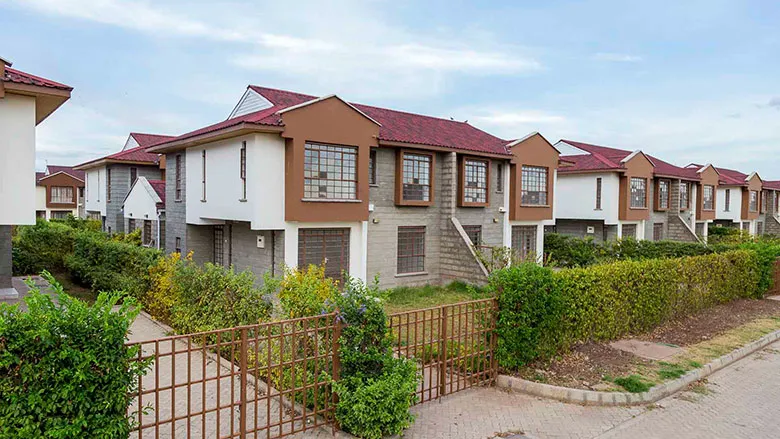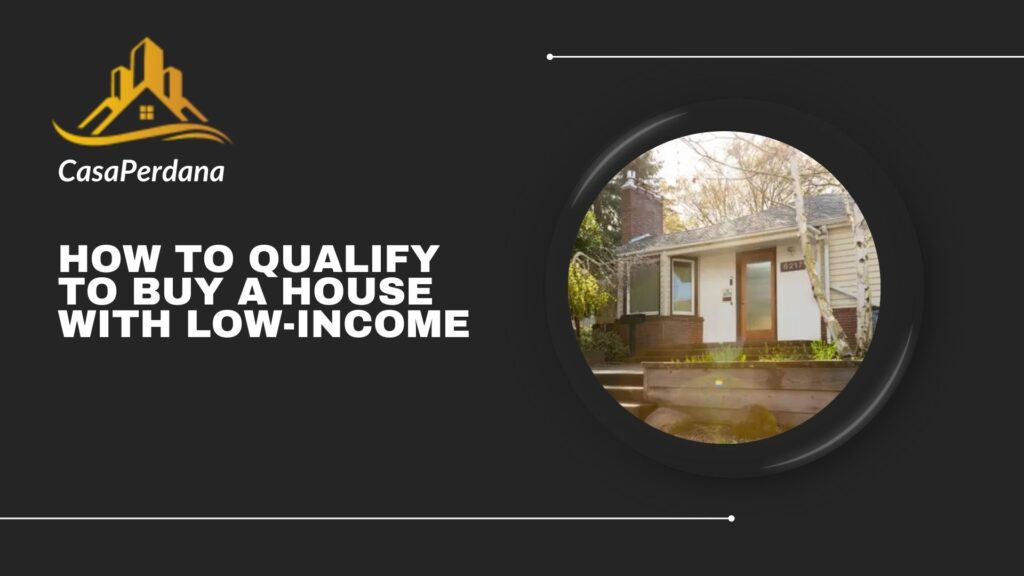Are you trying to get a house with low income? Do you want to know the measures to put in place to buy a house with low income? Keep reading as we show you the necessary steps to follow in owning a house with low income.

Owning a home may seem like a distant dream if you’re living on a low income, but the truth is, it’s possible with the right strategy and support.
Many people assume that you need a high salary to qualify for a mortgage, but there are actually several programs, financial tools, and smart planning methods that can help low-income earners become homeowners.
From government-backed loans to down payment assistance programs and budgeting tips, this guide will walk you through the steps you need to take to qualify for a home loan and find a property within your means.
How to Qualify to Buy a House With Low-income

Here is a step by step guide to buy a house with low income:
1. Assess Your Financial Situation
The first step to buying a house on a low income is understanding your financial picture. Start by calculating your monthly income, expenses, and debts. This will give you a clear view of how much you can realistically afford to spend on a mortgage each month.
Lenders typically use the debt-to-income (DTI) ratio to determine your loan eligibility. A lower DTI ratio increases your chances of getting approved. If your debts are high, consider paying them down or consolidating to reduce monthly payments. Also, review your credit score.
While you don’t need a perfect score, having a good credit history can lead to better loan terms. If your credit is low, take steps to improve it by paying bills on time, reducing credit card balances, and avoiding new debt.
Creating a budget and saving for upfront costs like the down payment and closing fees is also crucial. Being financially prepared shows lenders you’re a responsible borrower, even if your income is modest.
2. Explore Government-Backed Loan Programs
One of the best ways to buy a house with a low income is to take advantage of government-backed loan programs. These loans are designed to make homeownership more accessible and often have relaxed income and credit requirements.
The FHA (Federal Housing Administration) loan is a popular option, allowing borrowers to qualify with a credit score as low as 580 and a down payment of just 3.5%.
VA loans are another powerful option, but only for eligible veterans, active-duty service members, and some members of the National Guard. These loans offer zero down payment and no private mortgage insurance (PMI). Each program has its own criteria, so it’s important to research your eligibility.
Working with a lender who understands these programs can make the process easier and increase your chances of approval.
3. Look into Down Payment Assistance Programs
Coming up with a down payment is often the biggest barrier for low-income homebuyers. Fortunately, there are many down payment assistance (DPA) programs available at the local, state, and federal levels.
These programs provide grants, forgivable loans, or deferred-payment loans to help cover your down payment and, in some cases, closing costs.
Most DPA programs are targeted toward first-time homebuyers or those who haven’t owned a home in the past three years. They usually require you to complete a homebuyer education course and meet specific income and purchase price limits.
Some nonprofit organizations and housing authorities also offer assistance to qualified applicants. To find programs available in your area, check with your local housing finance agency or talk to a real estate agent who works with first-time or low-income buyers.
Taking advantage of these resources can significantly reduce the upfront costs of buying a home and make homeownership more attainable.
4. Consider Co-Borrowing or Co-Signing
If your income alone isn’t enough to qualify for a mortgage, you may consider applying with a co-borrower or co-signer.
A co-borrower, such as a spouse, family member, or trusted friend, shares the responsibility for the mortgage and typically lives in the home. Their income is combined with yours, potentially increasing your loan eligibility.
On the other hand, a co-signer helps you qualify for the loan by adding their income and credit strength to your application, but they do not live in the home or share ownership. This option can be helpful if you have a steady income but lack credit history or meet the income threshold.
However, both parties must understand the risks involved. If you default on the loan, your co-signer or co-borrower will be held financially responsible.
It’s essential to have a clear agreement in place and communicate openly to avoid future misunderstandings. This strategy can make qualifying easier and help you purchase a better home within your budget.
5. Shop Within Your Means and Be Flexible
When buying a home on a low income, it’s crucial to stay realistic about what you can afford. Avoid the temptation to stretch your budget or rely on future income increases.
Use mortgage calculators to estimate monthly payments, including taxes, insurance, and maintenance. Look for homes in more affordable neighborhoods or consider smaller properties, fixer-uppers, or condos that meet your needs without breaking the bank.
Being open to different locations and home types can expand your options. In some cases, buying a multi-unit property and renting out part of it can also help offset mortgage costs. Working with an experienced real estate agent who understands your financial situation can help you find good deals and negotiate favorable terms.
Remember, the goal isn’t to buy the most expensive house, it’s to secure a safe, stable place to live that fits your budget and long-term goals. Starting small and upgrading over time is a smart path to building wealth through homeownership.
Related Post:




